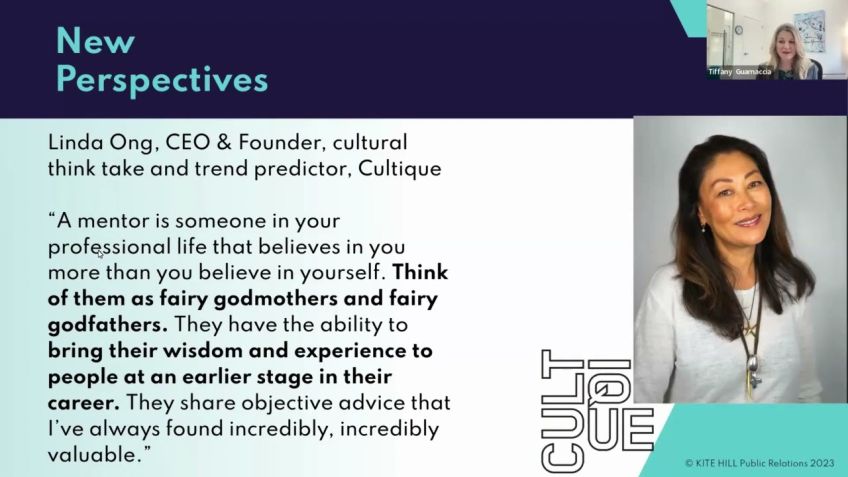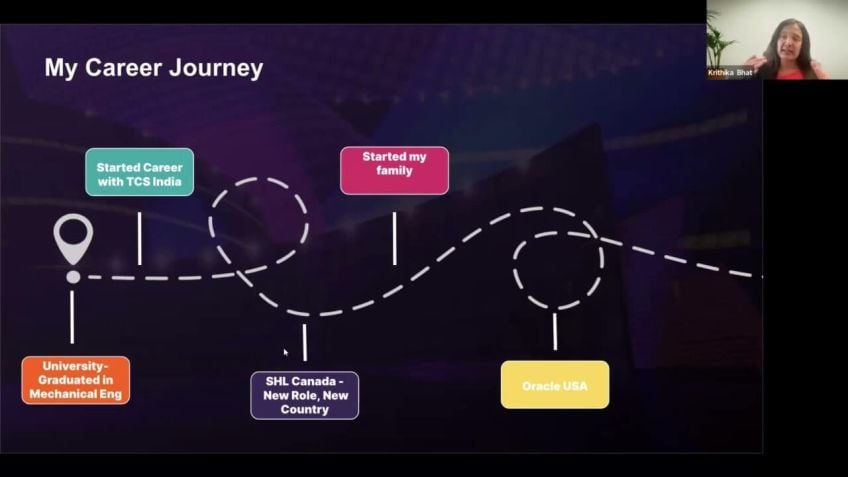Become An Expert in Giving Difficult Feedback
Navneetha Lokanathan
Leadership & Communciation Trainer & Assertiveness CoachBecome an Expert in Giving Constructive Feedback
Do you find it challenging to provide feedback, especially when it calls for improvements or behavioral changes in others? The apprehension is understandable and quite common. However, a successful business or working environment thrives on feedback. It's a crucial tool for personal and professional growth, fostering collaboration, and nurturing high potential talent within the workplace.
Tackling the Feedback Dilemma
Traditionally, providing feedback feels transactional and often disregards the sentiments involved during the process. To rectify this gap and eliminate common feedback mistakes, a more effective approach is the Nonviolent Communication (NBC) method. Introduced by Dr. Marshall Rosenberg, nonviolent communication includes empathy, feelings, and needs, ensuring that the recipient doesn't feel attacked, guilty, or fearful.
NBC focuses more on us rather than the recipient. It turns feedback into a process of sharing feelings and emotions. Constructive feedback expressed through this method is easier for the recipient to absorb without feeling defensive.
The Four Steps of Nonviolent Communication
Key components of the NBC method of providing feedback include Observation, Identification of Feelings, Identification of Needs, and Request.
- Observe: Detail the accurate, factual observations impacting you, without injecting personal evaluations or opinions.
- Identify Your Feelings: Clearly outline your feelings associated with the situation. Your feelings shed light on your likes, dislikes, and emotional state.
- Identify Your Needs: Needs and feelings are related; unmet needs often underlie negative feelings. Articulate your needs clearly during the feedback.
- Request: Specify your request positively, stating concrete actions the recipient can take. The clearer the request, the better the understanding and likelihood of change.
Converting Feedback into Nonviolent Communication
Constructive feedback transforming through the NBC lens looks like this:
Initial Feedback: "Don't spread company documents on the conference room floor."
NBC Feedback: "I am irritated when you leave company documents on the conference room floor because I want our documents to be safely stored and accessible. Could you place the company documents in the locker after meetings?"
The latter statement does not place blame, rather it explains the speaker's feelings, underlying needs, and cordially requests a specific action. The feedback genuine and less likely to instigate defensiveness.
Conclusion
Nonviolent communication is an effective solution to the difficulties faced while giving feedback. It encourages an environment of mutual understanding and empathy. The key challenges of this method lie in staying in touch with our own feelings and clearly knowing our needs. Once we can work on these, we can deliver better feedback, promoting growth and productivity in the workplace without damaging relationships.
Video Transcription
So yes, I welcome you all to this session. Becoming an expert in giving feedback. Good morning. Good afternoon. Good evening from wherever you are connecting.So tell me how many of you find it difficult to give feedback, especially when it comes to giving feedback that needs some improvement in others performance or some uh change in their behavior. How many of you find it difficult to give such sort of feedback? Can you see it in the chat? Yeah. In the trainings that I conduct, you know what, when I ask this question, people say out of like um uh 20 people almost Tween 12 to 13. People say that I find it difficult to give feedback and that is almost more than 50% right? So let's get practical now. And uh uh let me give you a situation and can you write a feedback? Let's see how it turns out are you in for that? Yeah, Elaine, I hear you. OK. So let me give you a situation. So the situation is um let's assume you are the team lead. Uh you are the team lead and one of your team members doesn't uh uh you know, doesn't hold on to the commitments he had made. OK. And uh this is affecting you and the team. Let's see.
How will you give feedback for this particular person for this particular scenario? All right. So let's take a couple of minutes to write the feedback. Once you are done, you can put your feedback in the chat box. Let's see, giving feedback can be worse. Sarah, yes. But with right techniques, it can, it may not be worse. OK. Your time starts now to write the feedback. So if you want to know the situation again, for people who have joined just now you are the team lead and one of your team members doesn't stick to the commitments he has made when it comes to group work and it is affecting you and the team. And how will you give the feedback in this scenario? Write down your feedback and paste it in the chat. Uh-huh. I started Selena come on, keep it going. Could you prioritize try to prioritize? OK. Anybody else? Like what feedback have you returned? Please put it in the chat box so that all of us can learn together? Yeah, I hope we have. Yes. Yes. Yes. Yes. Keep it coming in and you're all right. You know, when you say it is difficult to give feedback. Why? Because feedback can make or break a relationship with a team member or a colleague right then managed effectively. But feedback can bring that high talent bring that high potential into the workplace, it can lead to high collaboration.
So what are some of the mistakes we make when giving feedback? Let me share my screen with you. Now, what do you think are some of the mistakes we make in giving feedback? Can I uh see some of your analysis in the chat books blaming people? Exactly what, what else? What is, what are the common mistakes we make in giving feedback? Yes, absolutely. Sarah and, uh, telling people they are responsible for our feelings, right? Not giving enough praise. Yes. If you have any questions, you can put it in the Q and A, uh box available and we will take it up at the end of this session. So I see some hands raised. If you have any questions, you can put it in the Q and A box being either too bland or too soft. Yes. Yes. Yes, you're all there. So these are some of the common mistakes we make, there are plenty mis plentiful mistakes. But to cut short, like, you know, to, if we have to rate the mistakes that we make and feedback, these are some of the things that stand out blaming, right? You did this because of you. It got worse, right? And saying too much wrong type of feedback. Sometimes, you know, the Fresh for the, for the fresher you have just joined in. If you gave him continuously improvements, he would go frustrated. Right.
So you would have to give some praise over there for a fresher, but for an experienced person, they might be looking for points to improve. So if we are giving a wrong type of feedback, then it is not going to serve the purpose of giving feedback and failure to give actionable feedback. What the other person has to do, right. And passing it as judgments, lack of specificity being too generalized feedback on someone instead of their behavior, right? And the pillow issue, what is this pillow pillow issue sometimes? Uh um we know right? Like uh when we give feedback, we give a positive, a negative and a positive, right? Like a sandwich. Um and they say it is a pillow issue because it is like cushion the negative uh whatever area of improvement is cushion between the positives and the thing here is sometimes the that may not, that may not get noticed by the recipient, right? So these are some of the common mistakes in giving feedback. OK? I have come across many different ways of giving feedback and most of them are like transactional, right? There is no human involved in it.
So when it is transactional, what happens is uh we don't consider how the other person feels when we get this feedback, right? And we don't even consider our own feelings how we feel when something happens, right? But to eliminate all these mistakes where in giving feedback there comes this nonviolent communication, which is what we are going to see in this session. So anything that makes the other person feel fearful, shameful or guilt is considered as violent, right? It is considered as violent communication.
This nonviolent communication was introduced by Doctor Marshall and that he says, like, uh, we should not make the other person fearful, shameful or guilt when we communicate, right? So nonviolent communication is like, uh, you know, it is inclusive with empathy, inclusive of our feelings as well.
Our needs along with considering the other person's needs and wants, OK. And NBC is about you and not the other person because we have some unmet needs. And uh that, that is what we expect from the other person. So in NBC method of giving feedback, we are not going to say to the other person that you have done this, you, you have made me feel loved, you know, feel bad and uh you have to change your behavior. We are not going to blame the other person, but rather we are going to come from our side. I feel sad. Yeah, I feel sad when you look at me this way, correct. So it is not at all about the other person. It is about us, our feelings and our emotions. And when we express in that way, what happens is we, the other person will not become different, rather he will listen to what we are saying. All right. So NBC has four particular steps. Observe, identify your feelings, identify associated needs and request. OK. Observe is you will state the factual observations that is affecting you. OK? What is the actual factual situation that is happening? That is what is observed and what are the feelings associated with yourself?
What are the needs, unmet needs and what is the request? What do you want the other person to do? All right. So four components in NBC which are observed and feelings, identifying your feelings, identifying the needs and request. So when it comes to observe, often be confused with our evaluation and judgments. OK. So observe without evaluation, right? How can we do that? How can we observe without evaluating, say for example, saying that my father is a good man is evaluating, right? It is your opinion that he is a good man. But what is the actual thing that has happened? My father has donated $1 million to charity. That is the actual thing that has happened. So this is what observation is instead of saying you are always late to meeting, that is your opinion, but that is not the fact, right? The fact is last three times, the person has come late to the meeting. All right. So when you are giving feedback in any situation, observe and factual statements. OK. And restraint from your evaluations and from giving your own opinions. All right. And the next is feelings, feelings give us a lot of information about ourselves, right? Why we feel a certain way and it is very important to have an emotional audit, what we feel at any particular time, correct? Because feeling tells us like what we like, what we don't like, what we like to have all that we come to know about feelings.
And once you have an emotional audit of what you're feeling, what is that, that is affecting you? Yeah. And what feel it is uh what, what is that it is making you feel when you say that express it correct. It is feeling is one of the most important components of nonviolent communication. Let us see. See you irritate me when you leave company documents on the conference room floor. Here it is wrong because you irritate me. I'm blaming the other person, correct. But when you say I am irritated when you leave company documents on the conference room floor, the other person don't have anything to take it out in a defensive way. Rather they will listen to you. Correct. So one tip when you are expressing your feelings is using the eye statements, you see, I am irritated instead of telling you irritate me and needs how about these feelings and needs are connected because feelings are the mirror that says that are there any unmet needs? OK. If your needs are all of your needs are met, you will be happy. Correct. If your some of your needs are not met you will be, you will be angry, frustrated, correct. So the needs are the underlying factors of feelings. So identify what are your underlying needs and express it because when you express your needs most often we have a better chance of getting them met. OK.
So in this uh uh example of leaving company documents on the conference room floor, when we add our needs to it, the other person understands why we say so, right? Because I want our documents to be safely stored and accessible. Great. So be so observe without evaluation, feeling and needs be clear about your needs and finally request identify one actionable item that the other person wants to do that you want the other person to do. OK? And request it in clear positive concrete action language. When you say don't do this, people will not, that is not a positive language. Don't spread company documents on the conference room floor. Like they don't know why this lady is always like don't, don't, don't. Yeah. But when you say could you place the company documents in the locker room? It is very specific. Tell them specifically what action item you want the other person to do, right? So nonviolent communication is to observe state of factual observations that is affecting you do not evaluate again, I'm using here to not evaluate but that is a wrong. You have to give it a positive statement as we saw in the request space and identify your feelings? What are the, what are your feelings associated with it and identifying what are the needs underlying with it? And what is the request? What is that you want the other person to do so with this template?
Now, I invite you to go back and change your feedback for the situation. We saw early earlier. How would you change it? Can I see it in the chat box? If you have to say your observation, your feelings associated needs and requests. When you say it in this template, what happens is the other person is not played, the other person is not judged rather it invites more understanding which is what we need in today's working environment, right? So if you have to change it, how would you change your feedback?
Exactly. Sara needs are often related to your core values. Thank you. So I'm looking for the changed feedback. Meanwhile, we have four more minutes for this session to get over it. If you have any questions, you can type it in the Q and A box. The floor is open for questions. Thank you. So when we are making requests, we need to be clear, what is that we really want? Yeah, there was an a you know, there was a story, a husband and wife were there and this husband was spending too much of time at his workplace. So the wife went and told him like, don't spend too much work. Uh too much time at your workplace. Yeah. So what happened this husband after, uh, 23 weeks, he come and told me he said I have signed up for the golf course, but actually the wife wanted him to spend the time with her. Right. Since she did not mention what is that she wants specifically. This is what will happen. Right. Yes, I noticed that we are in getting everything done on time as the team. Could you make sure your part in the project is done by end of the week? Yes, we are getting there. Yes. Well, I feel stressed when the team deadlines are not met, please share your timeline with your team so that we could adjust the workload. Do you have any questions or any thoughts to say about what we have just discussed?
You can type it in the chat box as well. So here, the challenges could be two things, right? When we have our feelings, we may forget to be in touch with our feelings any time. So that is one challenge and another challenge is we may not know clearly know what we need. So if we can work on this, it would be much, much better when we give our feedback to our colleagues rather than blaming them. Yes. So thank you everyone for the wonderful love participation in uh through the chat box. And uh how do you feel? Well for your first feedback and this feedback when you have changed it. Yeah, love it. We all would want to receive such a feedback where nobody blames us, right? But just points what has to be collected, isn't it? So, thank you. Thank you for your participation. And uh yes, love it. I don't feel defensive at all. That is the beauty of NBC and um thanks a lot for your participation in this session. Thank you. Maya wish you good luck in delivering that difficult feedback. The session will be ending now. Thank you. Thanks a lot for your participation.






